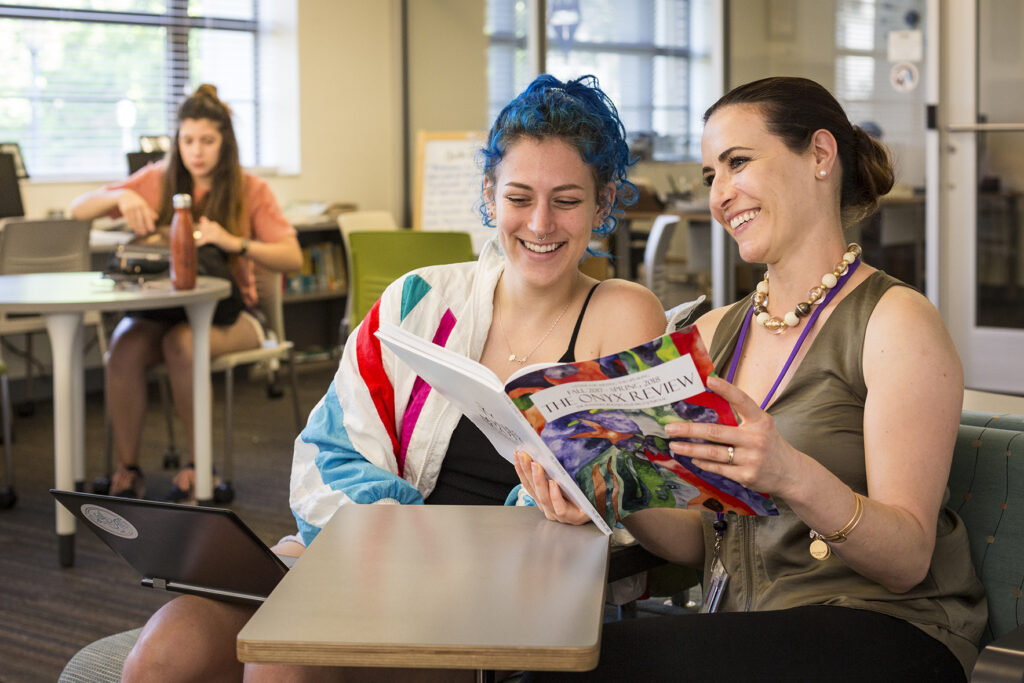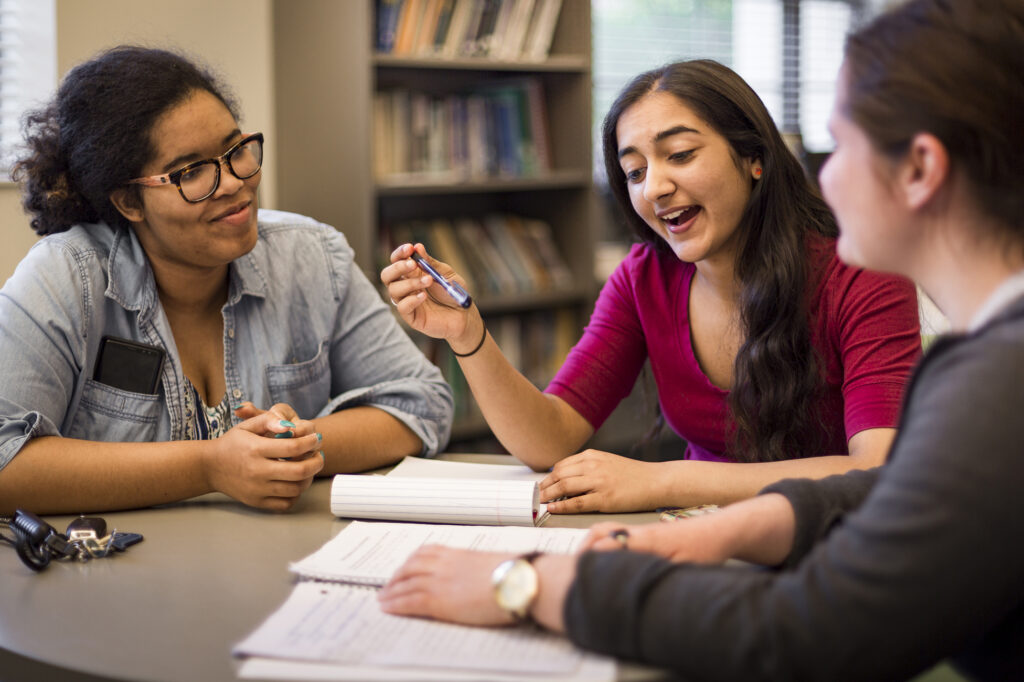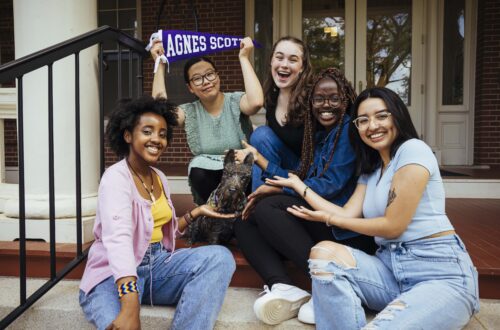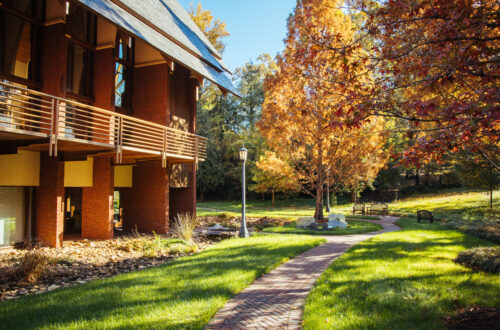Final Draft: Christine Cozzens’ Legacy Written with CWS Success
The Center for Writing and Speaking has long been an important resource for students at Agnes Scott College. With Christine Cozzens, vice president for academic affairs and instrumental leader of the center, retiring this June, it is the perfect time to discover how this important peer-led resource came to be and how it continues to benefit Scotties.
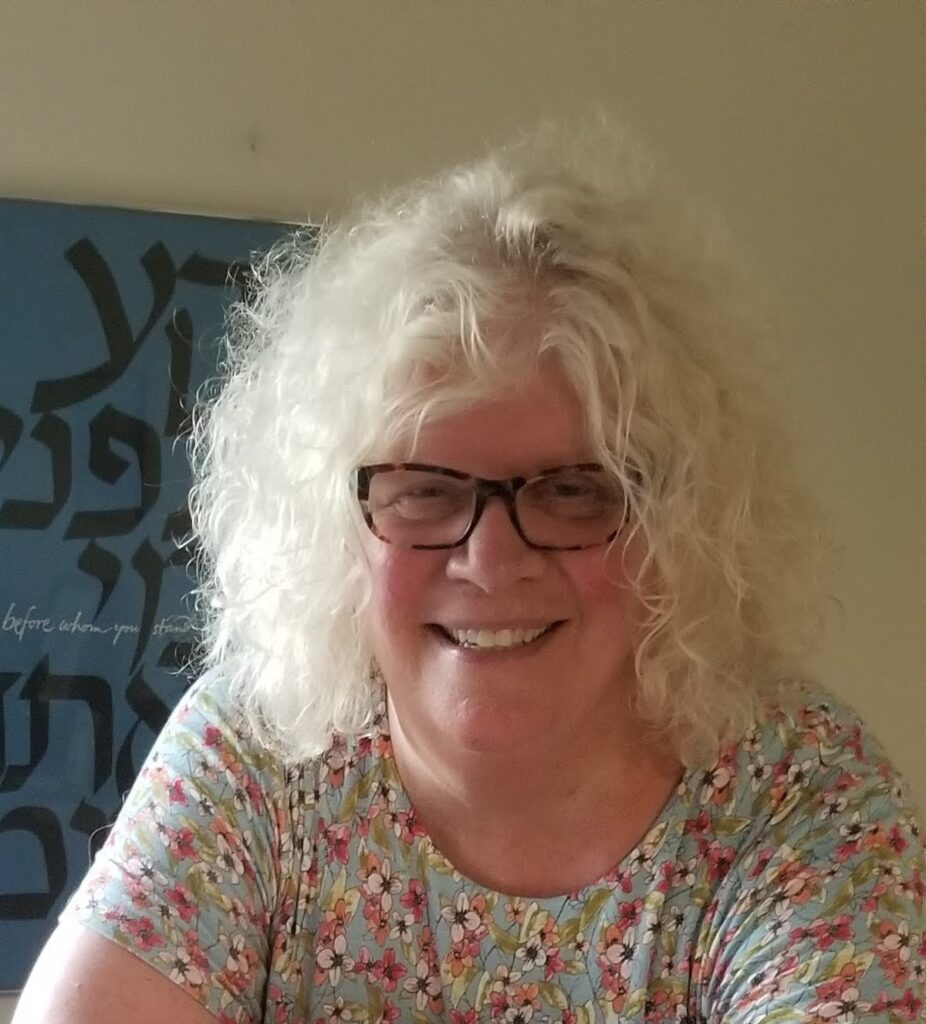
There are certain places on every college campus — an idyllic study space, a welcoming library or a bustling quad — that truly encapsulate the ethos of the institution. Places where students gather to share, learn and bond. Places where alums check in when returning to campus. Of course, Agnes Scott has a few such places: the Woodruff Quad gazebo, the sunporch in McCain Library, and Gaines Chapel, to name just a few.
But the Center for Writing and Speaking (CWS) captures the essence of the college and Scotties like nowhere else. Students come together there to foster critical thinking, develop ideas and support one another. The CWS represents a truly collaborative approach to tutoring and learning that reflects the college’s mission statement.
According to longtime CWS Director Cozzens (who is also vice president for academic affairs, dean of the college and Charles A. Dana Professor of English), the CWS is frequently mentioned by alums as a resource they wished they had while at Agnes Scott, and by students as a contributing factor to their attending the college.
Cozzens, who has been at the college for 35 years, will be retiring from Agnes Scott this June. Her legacy is, among numerous other things, that she built the CWS into the powerhouse it is today.
As its name suggests, the CWS is a peer tutoring organization devoted to improving and enhancing students’ writing and speaking skills. Agnes Scott’s center is not simply utilized for remedial work when students need help on a paper or presentation, and recognizes that writers and speakers of all abilities benefit from collaborative tutoring, in fact, the center is widely used on students’ senior projects.
The CWS is foundational to SUMMIT, championed by faculty and staff, and integral to the college’s strategic plan and emphasis on professional success. It has been recognized throughout the country as a model of an effective writing and speaking center.
“People tend to think that the English department would teach the students to write, but the fact of the matter is that students who major in other disciplines still need to know how to write and speak,” said Cozzens. “They are valuable skills that graduate schools, employers and internship locations frequently say set Agnes Scott students apart.”
When originally founded in 1986 by Linda Lentz Hubert, former English department chair, the center was called the Writing Workshop. The following year, Cozzens pushed the workshop to offer what it still does today: peer tutoring for writing available to all students at all levels at no cost. The focus on students tutoring their peers was a shift in perspective on what a writing center could be.
As Cozzens puts it, the workshop became an extension of the classroom. Students who utilized it were more interested in and excited about assignments because they could work through the writing process with a trained tutor. Seeing the benefits, faculty started to recommend the workshop to more and more students.
“The CWS succeeding can largely be attributed to the commitment of faculty and to Christine for really changing the historical culture of the college over many years,” said Mina Ivanova, the acting CWS director and a visiting assistant professor. “Initially, the idea that learning would be so collaborative or that students would seek support from a peer was frowned upon. Christine came with a very different mindset, and it took time to change the culture. But she consistently demonstrated the benefits of peer tutoring, which are now well known through the research.”
In 1996, several student surveys suggested that students sought “more meaningful work” for financial aid and other on-campus jobs than what was available. Meanwhile, more attention was being given to oral presentations in most courses, which increased the need to train students in public speaking. Expanding the tutoring program to include a speaking center — under the new name of the Center for Writing and Speaking — was a useful response to these issues. The newly formed CWS was the first center of its kind in the Southeast and one of the first in the country.
Then, following college-wide budget cuts in 2011, CWS administrators and tutors agreed that all tutors should coach both writing and speaking. This important change benefitted both the tutors and the students who come for help.
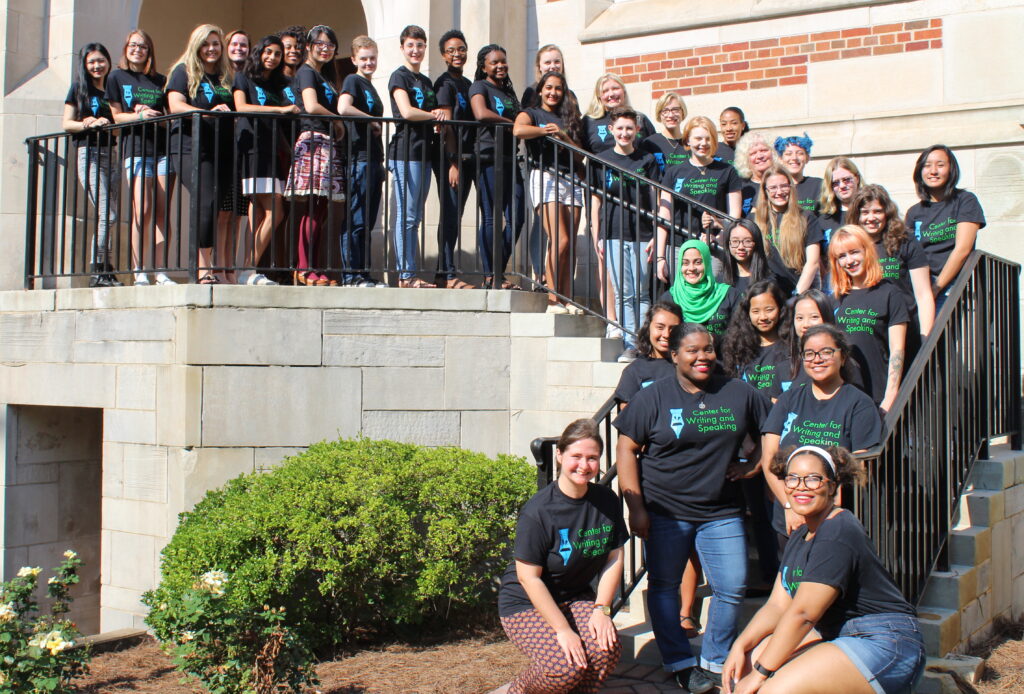
“There is an intimate relationship between writing and speaking,” said Cozzens. “Being able to publicly speak about a topic pushes students to further understand what it is they are writing and talking about.”
The CWS has never simply been an appointment-as-needed resource on campus, and it has evolved and added more resources and programming throughout the years. CWS tutors frequently create and update a variety of writing and speaking materials, and put on workshops throughout the academic year.
Students can also be matched with a tutor for the entirety of a semester or year through the Partners Program. Additionally, the Course Tutor Program assigns CWS tutors to a particular course and instructor. A course tutor attends all class sessions, is acquainted with the course materials and offers course-specific help for writing and speaking assignments. All first-year students at Agnes Scott are served by the Course Tutor Program, as required first-year courses LDR 101 and ENG 110 both have CWS course tutors.
This college-wide commitment to continually grow and strengthen the CWS is reflected in the center’s high usage rate. An astounding 70% of students utilized the CWS and its resources at least once a year.
Even during the pandemic, when the CWS, like the rest of the college, moved to a virtual format, the center was a widely used resource. Because fewer students could maintain daylong online sessions, CWS tutors created an array of video workshops and tutorials for writers and speakers at all levels. Students could view these interactive sessions online and also attend live Q&A sessions with tutors. This pivot during the pandemic is a testament to the ingenuity and excellence of the CWS tutors.
“Many CWS tutors are seeking a community, a kind of intellectual home on campus,” Ivanova said. “The CWS provides this because it’s a tight-knit group that receives support from each other. They are also very eager to give back to the college and their peers.”
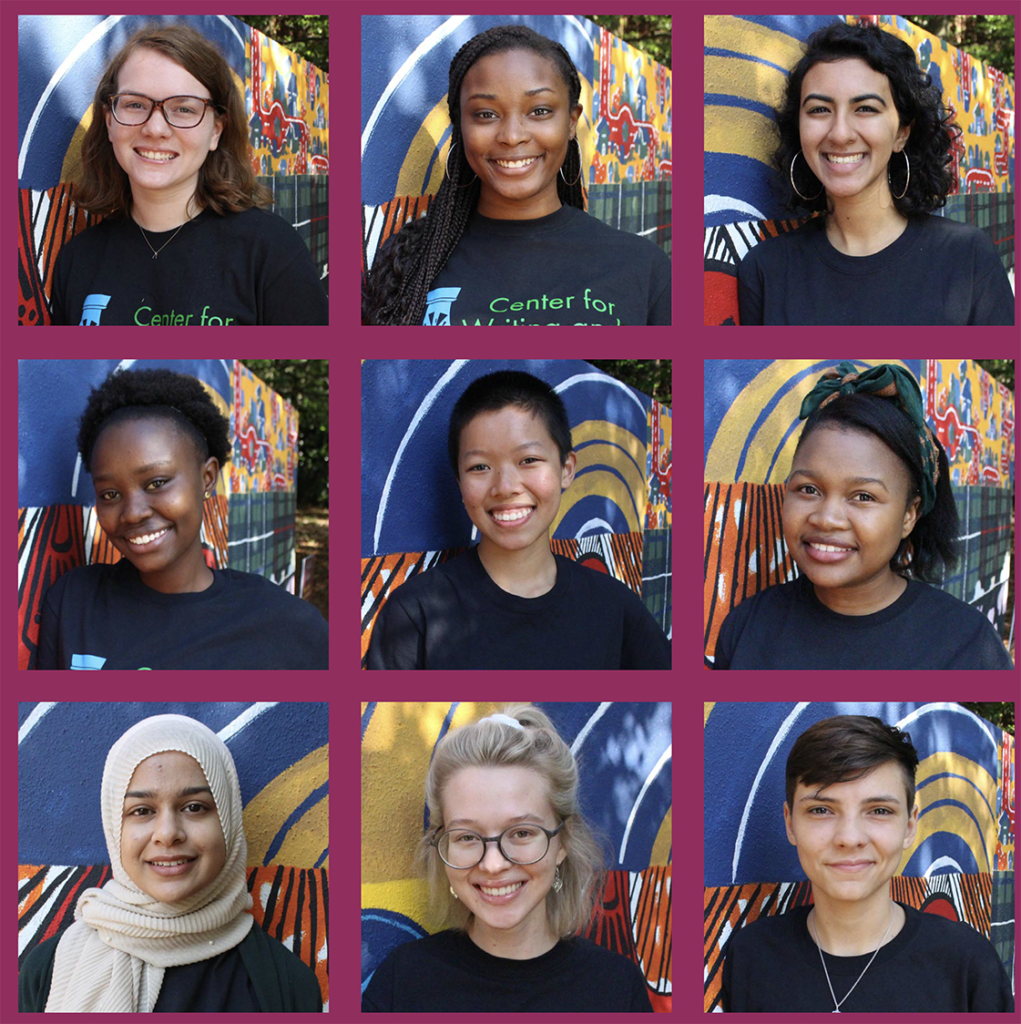
CWS tutor is a highly sought-after job on campus. In addition to forming a community and helping their peers, tutors strengthen their own communication skills and have multiple professional development opportunities. Typically, there are around 35 CWS tutors at a time who each work 10 hours per week, including committee assignments. (The CWS committees are the Research Committee, Digital Media Committee, Resources Committee, Journal Committee and Workshops Committee.) Tutors also publish the interdisciplinary research journal The Onyx Review, organize the Impromptu Speech Contest and the Annual Gala, and present at the Southeastern Writing Center Association’s annual conference.
“Every year when I look at the honors distributed and reflect on the achievements of the student tutors I have worked with, I just feel so incredibly lucky,” said Cozzens.
An academic research paper should always be revised and improved upon, of course. And much like a research paper, the CWS is in a continual process of updates and alterations. While the fundamental mission to provide free tutoring for all students in all disciplines remains, the CWS will continue to adapt as necessary to better serve tutors and students alike.
The story of the CWS truly captures the innovative, ambitious and collective spirit of Agnes Scott, its students and of course the center’s longtime leader, Cozzens. She has woven the CWS into the fabric of the college, ensuring it is a resource that can evolve and thrive even as her time at Agnes Scott comes to an end.

